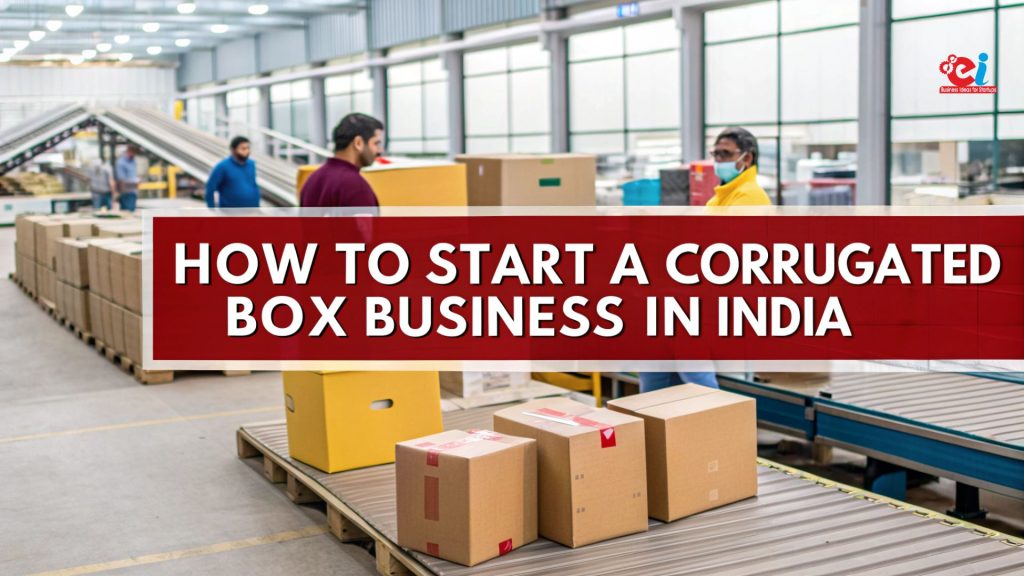With the global push for clean energy, electric mobility, and renewable power storage, the lithium-ion battery industry has emerged as a pivotal force shaping the future. From powering smartphones and laptops to electric vehicles (EVs) and solar power grids, these batteries play a central role. As demand surges, entrepreneurs are finding lucrative opportunities in setting up lithium-ion battery assembling plants. This article serves as a detailed guide on how to start a successful venture in this booming sector.
Understanding the Lithium-Ion Battery Assembling Business
Before diving into business planning, it’s vital to understand what a lithium-ion battery assembling plant entails. Unlike manufacturing every component from scratch, assembling refers to sourcing battery cells, battery management systems (BMS), and other key materials and assembling them into final battery packs. These battery packs can vary in application—from small power banks to large EV batteries and solar inverters.
This makes the business more accessible since it requires lower capital investment than full-scale cell manufacturing, while still yielding significant margins and scalability.
Market Opportunity for Lithium-Ion Battery Assembly
India’s battery market is rapidly expanding, driven by the growing adoption of electric vehicles, the need for grid energy storage, and the increased use of portable electronics. According to research, India’s lithium-ion battery market is expected to grow at a CAGR of over 20% by 2030. Major government initiatives like the FAME II policy and Production Linked Incentive (PLI) schemes further support the ecosystem.
Furthermore, as the world gradually phases out fossil fuels, the dependency on lithium-based energy storage will only multiply. Early movers in this segment stand to benefit from first-mover advantages, strong brand establishment, and long-term contracts with OEMs.
Key Segments in the Lithium-Ion Battery Assembly Business
1. Cell Procurement
Most assemblers source lithium cells from global suppliers, especially from China, South Korea, or local manufacturers in India. The choice depends on cost, quality, and application requirements.
2. Battery Management System (BMS)
The BMS is a critical component responsible for safety, performance optimization, and extending battery life. It controls parameters like voltage, current, temperature, and state-of-charge.
3. Pack Design and Assembly
This includes mechanical design, thermal management, wiring harnessing, and assembling cells into modules and packs. Automation and robotics can streamline this process at scale.
4. Testing and Quality Control
Rigorous testing—thermal cycling, voltage checks, load tests—is crucial to ensure safety and consistency, especially for automotive and grid applications.
Steps to Start a Lithium-Ion Battery Assembling Plant
Step 1: Market Research & Business Plan
Start by identifying your target market—will you cater to EV manufacturers, solar companies, telecom industries, or consumer electronics? Each segment has different power, form factor, and lifecycle requirements.
Your business plan should cover:
- Target market & product applications
- SWOT analysis
- Estimated investment & ROI
- Competitive landscape
- Sales & distribution channels
- Risk mitigation strategies
Step 2: Legal Registration & Compliance
Register your business as a Pvt Ltd, LLP, or proprietorship firm, and acquire necessary licenses:
- Udyog Aadhaar (MSME registration)
- GST Registration
- Pollution NOC from the State Pollution Control Board
- Factory License
- BIS Certification (especially for end products)
Also, ensure compliance with battery waste management and e-waste handling norms under CPCB guidelines.
Step 3: Location & Infrastructure
Choose a location with good power supply, transportation access, and adequate space (minimum 3000–5000 sq. ft. for small-scale assembly). Industrial zones or special economic zones (SEZs) may offer incentives.
Infrastructure requirements include:
- Cleanroom/ESD safe environment
- HVAC & ventilation
- Safety equipment & fire control
- Assembly lines & testing labs
- Storage for cells and hazardous components
Step 4: Equipment & Machinery Setup
Depending on the scale, your lithium-ion battery assembly line may include:
- Cell grading machines
- Spot welding machines
- Battery pack testers
- BMS programmers
- Ultrasonic welders
- Heat shrink tunnels
- Laser printers for branding
You may source these machines locally or import them from established vendors in China, Taiwan, or Germany.
Step 5: Raw Material Sourcing
Essential materials include:
- Lithium-ion cells (cylindrical, pouch, prismatic)
- BMS units
- Nickel strips & connectors
- ABS/metal casings
- Thermal management materials
- Wires, connectors, and insulation
Build partnerships with certified suppliers to ensure continuity, quality, and price efficiency.
Step 6: Hiring and Workforce Training
Technical skills are essential in this business. Hire technicians, quality engineers, R&D experts, and assembly workers. Train your team in:
- Battery chemistry and safety
- BMS programming
- Quality inspection standards (ISO, ARAI, etc.)
- Handling lithium cells safely
For scale, explore automation to reduce dependency on manual labor and improve consistency.
Step 7: Branding, Marketing & Distribution
Develop a strong brand focused on performance, safety, and customization. Your marketing strategy may include:
- OEM partnerships
- Exhibiting at EV expos and green energy summits
- Digital marketing, SEO, and LinkedIn outreach
- Distributors and system integrator channels
Develop prototypes, conduct field trials, and collect performance data to build credibility.
Investment and Cost Breakdown
A small-scale lithium-ion battery assembly unit may require ?50 lakh to ?1.5 crore (USD 60,000 to 180,000), depending on the production capacity and automation level. Here’s a sample breakdown:
| Component | Approximate Cost (INR) |
|---|---|
| Machinery & Equipment | ?20–30 lakh |
| Raw Material Inventory | ?15–25 lakh |
| Factory Setup & Infrastructure | ?10–20 lakh |
| Licenses and Certification | ?2–5 lakh |
| Manpower & Initial Salaries | ?3–5 lakh |
| Marketing & Branding | ?2–3 lakh |
| Total | ?50 lakh to ?1.5 crore |
Challenges in the Lithium-Ion Battery Business
1. Supply Chain Dependency
Most lithium-ion cells are imported, making your business susceptible to currency fluctuations and import policies.
2. Safety Risks
Improper handling or defective BMS units can lead to fires or explosions. Ensure rigorous testing and quality controls.
3. Competition & Pricing Pressure
The market is becoming competitive, with big players offering cheaper battery packs at scale. Differentiation through quality and customization is key.
4. Recycling and Environmental Norms
Battery recycling and disposal laws are becoming stricter. Partner with certified recyclers and maintain reverse logistics systems.
Future of the Lithium-Ion Battery Industry
The future of the lithium-ion battery sector looks incredibly bright, particularly in India. With plans to phase out ICE vehicles by 2030, strong EV adoption, and increasing solar power capacity, the demand for safe and efficient batteries is only going to grow.
Technological innovations in battery chemistry—like solid-state batteries, silicon anodes, and lithium-sulfur—are also on the horizon. Entrepreneurs who invest in R&D today will be tomorrow’s leaders.
Final Thoughts
Starting a lithium-ion battery assembling plant is not just a profitable business opportunity—it’s an investment in the clean energy future. With increasing demand, government support, and evolving technology, the time is right to enter this industry. Focus on quality, safety, and adaptability, and you can build a sustainable and scalable battery business.
The road ahead will be challenging but full of potential. With proper planning, execution, and innovation, your venture can power homes, cities, and vehicles—leading the charge in India’s energy revolution.
Visit the page Select and Choose the Right Business Startup for You for sorting out the questions arising in your mind before starting any business and know which start-up you can plan.
We, at NPCS, endeavor to make business selection a simple and convenient step for any entrepreneur/startup. Our expert team, by capitalizing on its dexterity and decade’s long experience in the field, has created a list of profitable ventures for entrepreneurs who wish to diversify or venture. The list so mentioned is updated regularly to give you a regular dose of new emerging opportunities.





